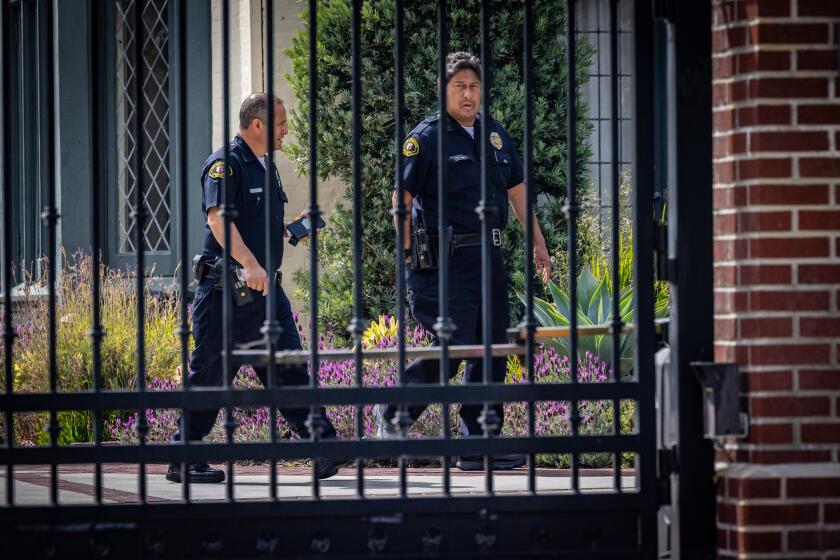State launches probe into outage at San Onofre plant
The California Public Utilities Commission has launched an investigation into the nine-month outage at the San Onofre nuclear plant, which could result in rates eventually being lowered or money refunded to utility customers.
The five commissioners voted unanimously to launch the investigation at a meeting Thursday in Irvine, the first such probe in California in a decade.
Commission President Michael Peevey promised that the investigation of the darkened plant -- on the coastline south of San Clemente -- will be “exhaustive.” It could also be time-consuming, potentially not finished until the second half of 2014.
The investigation will look at the costs already incurred in the long-running outage, which resulted from defective replacement steam generators, and at the potential cost to ratepayers from repairs as well as scenarios in which one or both reactors never come back online.
Southern California Edison and San Diego Gas & Electric customers are paying more than $1.1 billion a year in costs related to the troubled plant, according to the commission.
The cost of testing and studies, repairs, replacement power and potential litigation between Edison, the plant’s operator, and steam generator manufacturer Mitsubishi Heavy Industries could increase that tab.
Ratepayer advocates have pushed the commission for months to strike the costs of the shuttered plant from customers’ bills, but the panel postponed action.
The outcome of Thursday’s vote was somewhat of a foregone conclusion. State law requires the commission to launch an investigation if a power-generating facility has been out of service for nine months.
The measure is rare: The agency has launched only three previous investigations. The most recent involved a PG&E; hydroelectric project knocked out of commission by a storm in 1997. That probe took five years to complete and resulted in an $810,000 rate reduction.
In each case, despite receiving some relief, customers remained responsible for a substantial portion of the plant’s costs, and were required to pay all or most of the company’s cost of purchasing replacement power.
Commissioner Mike Florio said that does not necessarily herald the outcome of the San Onofre case.
“Every case is different, and we’ll have to look at all the circumstances surrounding this,” he said. “I think it’s clear that there were some very serious errors made, but who’s responsible for that and how it all shakes out is what this proceeding is all about.”
The investigation may take as much as two years, but Florio said the commission could take action to reduce or refund rates sooner, possibly in the first half of next year.
Edison has submitted a proposal to the U.S. Nuclear Regulatory Commission to restart one reactor, where the issues were less severe, at partial power. The NRC must give approval before the plant can fire up again.
The utilities commission is not involved in that decision.
The panel heard from dozens of local residents and advocates concerned about the safety and costs of restarting the plant on one side and about the possibility of rate increases and less reliable power if the plant remains offline on the other.
“We rely completely on safe, reliable and not costly power,” Shelley Henderson, who runs the Orange County Breeze, a community newspaper with a staff of three, told the commission. “If we are forced to deal with rolling blackouts, our business is out of business.”
John Geesman, a former California Energy Commission member and attorney for the Alliance for Nuclear Responsibility, urged the commission to hold Edison’s management accountable and force them to stop “throwing good money after bad.”
“We pay [Edison International Chief Executive] Ted Craver $10.8 million, [Southern California Edison President] Ronald Litzinger $2.9 million to avoid the very type of mess that we’re experiencing at San Onofre,” he said. “Why should the customers continue to pick up the tab for their failings?”
--
More to Read
Start your day right
Sign up for Essential California for news, features and recommendations from the L.A. Times and beyond in your inbox six days a week.
You may occasionally receive promotional content from the Los Angeles Times.







